FSU Institute for Successful Longevity Hosts Dr. George Demiris for the Fall Lecture Series Event
The Institute for Successful Longevity (ISL) at Florida State University has gladly hosted a visit from Dr. George Demiris from University of Pennsylvania for the Fall Lecture Series events.
In the morning October 9, 2024, ISL organized a dynamic panel discussion, at the Tallahassee Senior Center, focusing on the intersection of technology and aging. The event, part of FSU Discovery Days, showcased the latest research and practical applications aimed at enhancing the quality of life for older adults through technology. George Demiris, the Mary Alice Bennett University Professor at the University of Pennsylvania and a member of the National Academy of Medicine, opened the event with a keynote titled “Aging and Technology: Challenges and Opportunities.” Demiris discussed how artificial intelligence (AI), wearable technology, and smart homes can revolutionize aging in place, promoting safety, independence, and well-being for older adults.
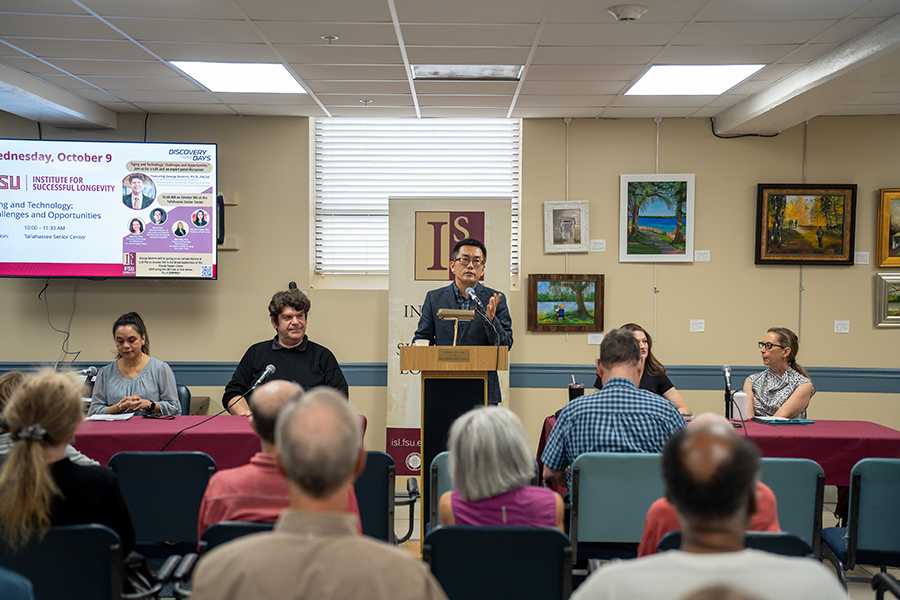 Photo courtesy of Michael Walsh
Photo courtesy of Michael Walsh
“Events like this allow us to connect directly with the community, hear their perspectives, and better understand their needs,” said Dr. Zhe He, Interim Director of ISL. “Technology can enhance the quality of life for older adults, but it’s essential that we address their unique challenges and concerns. This event isn’t just about showcasing advancements—it’s about ensuring innovations are accessible, user-friendly, and truly meet the needs of the people we aim to support.
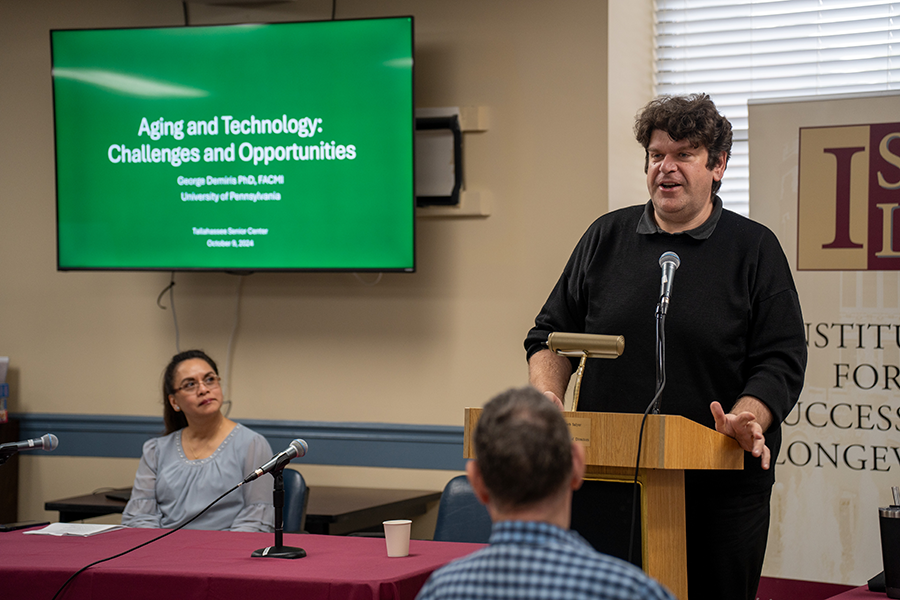 Photo courtesy of Michael Walsh
Photo courtesy of Michael Walsh
“These technologies help us understand how someone is living in their own home,” Demiris explained. “For example, sensors can detect changes in behavior, like restlessness at night or reduced mobility. This data allows caregivers and healthcare providers to intervene early and develop personalized care plans.”
He emphasized the importance of continuous monitoring through smart technologies, shifting from reactive to proactive care models. Demiris also addressed the challenges of social isolation and loneliness, highlighting ongoing research that explores how digital companions and interactive devices can support mental health for older adults.
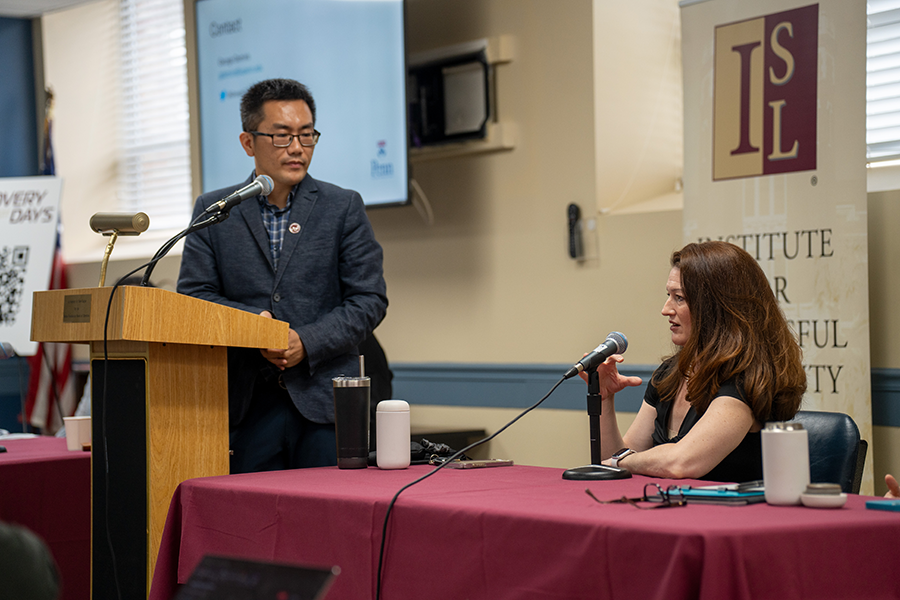 Photo courtesy of Michael Walsh
Photo courtesy of Michael Walsh
Following his talk, Demiris joined a panel discussion featuring FSU experts, including Dr. Zhe He, Dawn Carr (Director of the Claude Pepper Center and Professor of Sociology), Mia Lustria (Professor of Information), and Miles Taylor (Director of the Pepper Institute on Aging and Public Policy and Professor of Sociology). The panel engaged in an insightful dialogue with community members, addressing questions about data privacy, equitable technology access, and the challenges of integrating technology into healthcare.
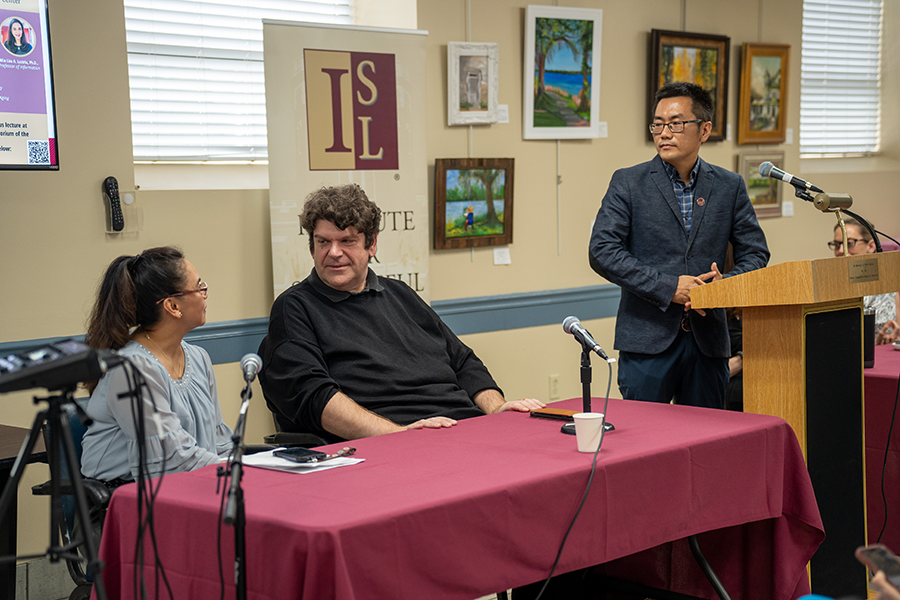 Photo courtesy of Michael Walsh
Photo courtesy of Michael Walsh
“We want to empower individuals to take charge of their health using the right tools,” Dr. Lustria explained. “Technology adoption must be tailored to meet the specific needs of each person.”
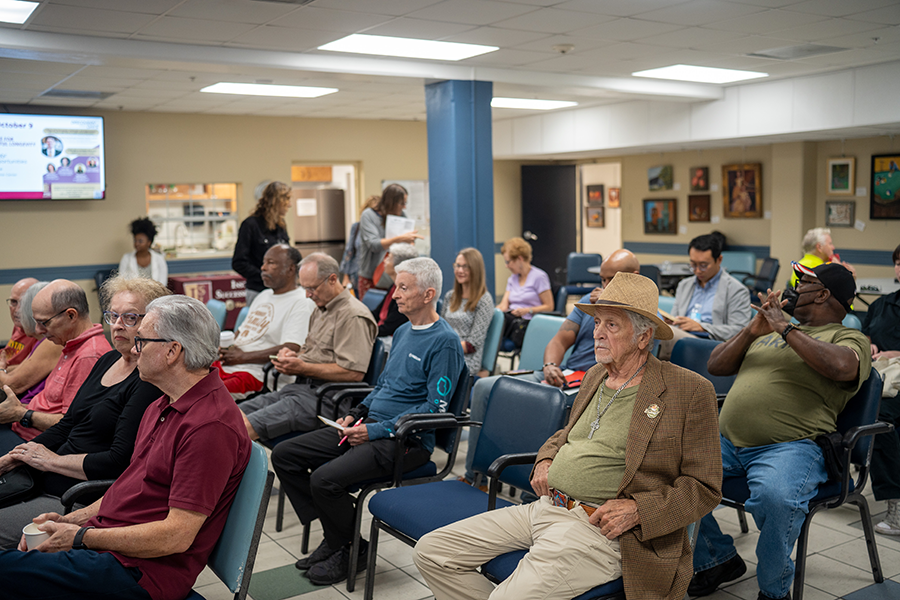 Photo courtesy of Zhe He
Photo courtesy of Zhe He
The panel concluded with Dr. He underscoring the need for adaptable technology that reflects the unique experiences of the aging experience. “We need to recognize that aging is diverse, and technology must be adaptable to meet the unique needs of each individual,” He said.
Dr. Demiris then joined a luncheon with graduate students and postdoc scholars at FSU to share his insights in career opportunities, challenges, and trajectories.
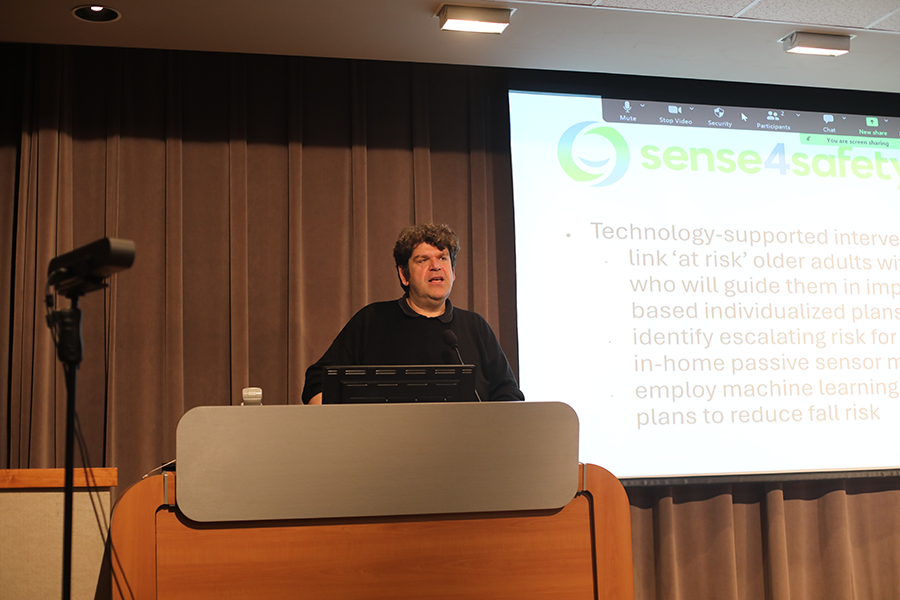 Photo courtesy of Zhe He
Photo courtesy of Zhe He
Later in the day, Demiris also gave a talk titled “Artificial Intelligence and Aging: Examples and Lessons Learned” at the Claude Pepper Center, where he further explored the intersection of AI, healthcare, and aging. During this session, he explored specific research on how technology can help predict and prevent falls in older adults, especially those with mild cognitive impairment. He highlighted the use of passive sensor monitoring and machine learning models that can detect changes in gait or behavior patterns, which provide early warnings and improve interventions. Demiris emphasized the importance of digital accessibility and ensuring AI technologies are designed to be user-friendly and responsive to the needs of aging populations.
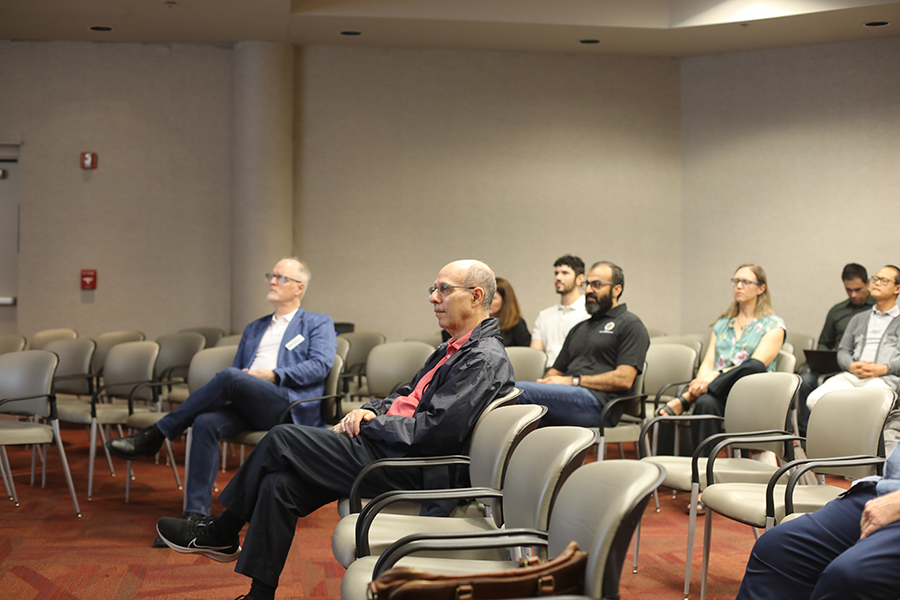 Photo courtesy of Zhe He
Photo courtesy of Zhe He
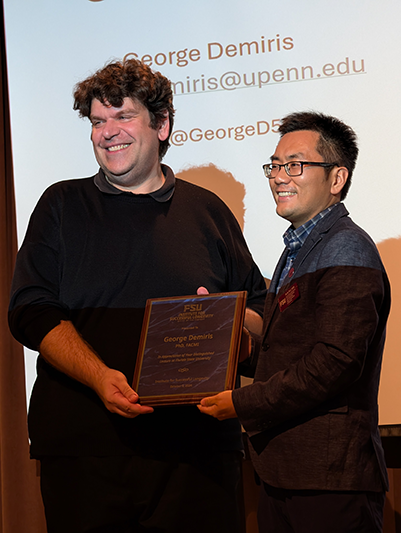
Photo courtesy of Neil Charness
You can check out his ISL lecture video below:












